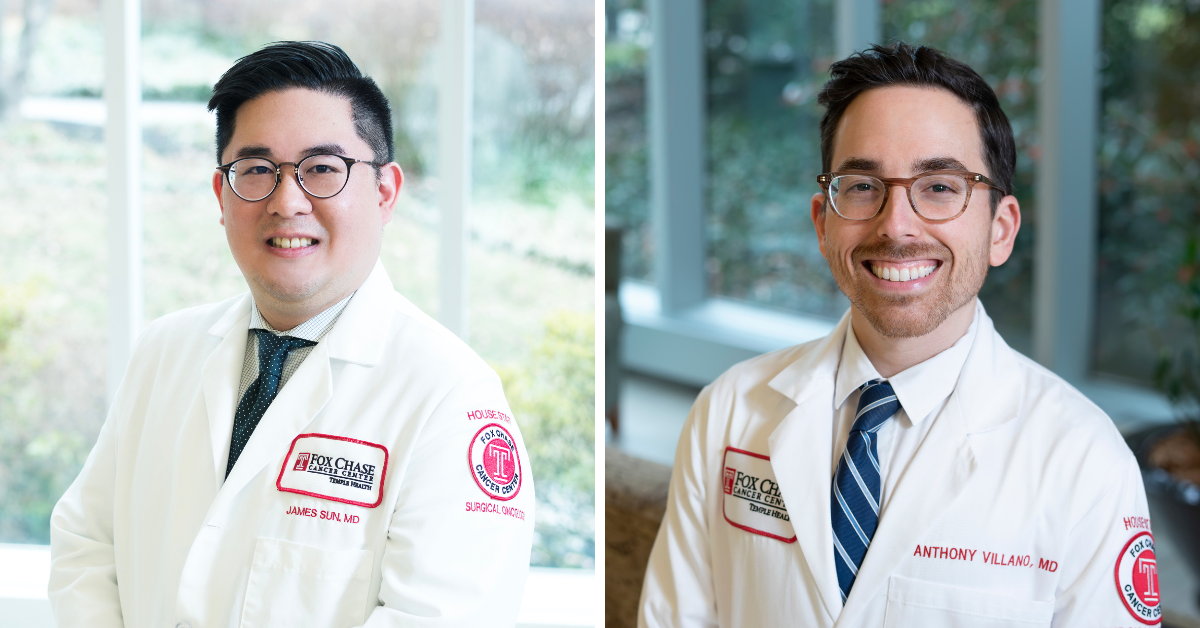
PHILADELPHIA (February 24, 2025) — Starting treatment within 60 days of initial evaluation significantly improves survival rates for rectal cancer patients, according to a study released today by researchers at Fox Chase Cancer Center and Temple Health.
These findings are particularly relevant as treatment for rectal cancer advances and complexity increases, potentially involving multiple specialists and types of treatment that can take more time for patients and providers to coordinate.
“Our research affirms that timely treatment has real implications for patient survival,” said James Sun, MD, Complex General Surgical Oncology Fellow at Fox Chase and first author of the study. “The standard set by the National Accreditation Program for Rectal Cancer, to start treatment within 60 days of diagnosis, is crucial for institutions to commit to.”
Led by senior author Anthony Villano, MD, FACS, Assistant Professor in the Department of Surgery at Fox Chase, Sun and fellow researchers from Fox Chase and Temple Health analyzed data from over 117,000 patients in the National Cancer Database who were treated for stage I–III rectal cancer between 2004 and 2020. They found that patients who received treatment within two months of receiving their diagnosis showed significantly better survival rates.
They also found disparities in who received timely treatment. Patients in higher income brackets were more likely to be treated within the 60-day window, whereas Black, Asian, and Hispanic patients faced delays in starting treatment. Patients with Medicaid or no insurance also experienced delays.
“There’s a wide variation in care quality depending on where people live and what resources are available to them,” said Sun. “At Fox Chase, we’re privileged to have all services for patients on one campus, but this isn’t the reality for many Americans.”
While not all patients have equal access to timely care, the researchers noted that standardization of care through programs like the National Accreditation Program for Rectal Cancer (NAPRC), which was established in 2017 to improve treatment consistency and outcomes for patients with rectal cancer, could help address these disparities. Timely treatment initiation is one of the key NAPRC standards.
“As more institutions work toward NAPRC certification, we hope to see these disparities decrease and survival rates improve across all patient populations,” said Sun. “It will be a few years until we have the data to compare, but this study shows that it’s worth working toward.”
The study, “Effect of Rectal Cancer Treatment Timing Standardization on Patient Outcomes,” was published in the American Journal of Clinical Oncology.